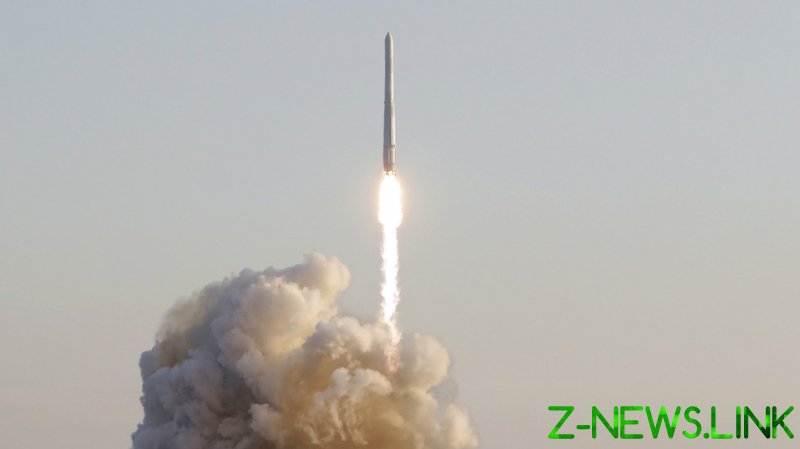
The investigation into the failure of the October test launch of South Korea’s Nuri rocket zeroed in on an anchoring device on its third stage as the culprit. It may lead to delays of the next scheduled launch.
The rocket, also known as KSLV-II, was the first space launch vehicle fully developed and produced by South Korean engineers. It made its maiden launch on October 21, attempting to place a dummy satellite on a heliosynchronous orbit. But the engine on its third stage shut down prematurely, derailing the mission.
A government committee set up to investigate the failure has identified the cause, the Yonhap news agency reported on Wednesday. A device anchoring a helium container inside the oxidizer tank in the third stage engine had loosened, due to increased buoyancy.
Once unfastened, the helium container bounced around, damaging the oxidizer tank and piping, and causing the leakage of both fluids. It left the engine without enough propellant to complete its program, forcing it to shut down 46 seconds early. The third stage did deploy its payload, but the speed it managed to achieve was not enough to make its orbit stable.

The imperfect launch was nevertheless hailed as a great achievement by South Korean officials. Nuri’s predecessor, the Naro-1 rocket (KSLV-I), was restrained in its development due to limitations imposed on Seoul’s rocket industry by the US. The two-stage launch vehicle, which made its first successful launch in 2013, used a modified Russian first stage. In contrast, Nuri is fully domestically made.
Seoul has scheduled four more Nuri launches over the next six years, with the first expected in May 2022. It was intended to be the last using a dummy payload instead of an actual satellite. The committee’s report may result in a delay of that launch, however, Yonhap said.
The development of independent space-faring capabilities cost South Korea an estimated $1.8 billion investment in the Nuri rocket program alone. Seoul believes the spending is worthwhile, since it would allow it not to rely on foreign powers in placing civilian and military satellites in orbit. At present, the country has no military space surveillance assets of its own and uses intelligence provided by allies such as the US to monitor its hostile neighbor North Korea.
© 2021, paradox. All rights reserved.





